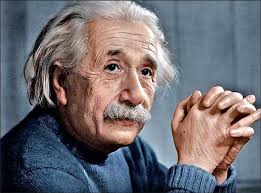Albert Einstein, renowned for his groundbreaking contributions to theoretical physics, was not only a scientific genius but also a profound philosopher whose insights transcended the realm of science.
While his theories of relativity and quantum mechanics revolutionized our understanding of the universe, Einstein’s philosophical musings delved into the nature of reality, the meaning of existence, and the mysteries of the human mind.
At the heart of Einstein’s philosophical outlook was his deep reverence for the beauty and elegance of the natural world. He saw in the laws of physics a reflection of a higher order, a cosmic harmony that pervaded the universe.
For Einstein, science was not merely a tool for understanding the mechanics of the universe but a means of glimpsing the mind of God, as he famously put it: “I want to know how God created this world. I am not interested in this or that phenomenon, in the spectrum of this or that element. I want to know His thoughts, the rest are details.”
Einstein’s philosophical inquiries led him to question the nature of space, time, and causality. His theory of relativity shattered the Newtonian conception of absolute space and time, revealing them to be fluid and relative, intertwined in a dynamic fabric known as spacetime.
In Einstein’s view, the universe was not a collection of discrete objects moving through empty space but a seamless continuum in which everything was interconnected.
Central to Einstein’s philosophical worldview was his belief in the power of imagination and intuition as drivers of scientific discovery. He famously remarked, “Imagination is more important than knowledge.
For knowledge is limited, whereas imagination embraces the entire world, stimulating progress, giving birth to evolution.” Einstein recognized that the most profound insights often arose not from rote memorization or logical deduction but from daring to think beyond the confines of established dogma and convention.
Einstein’s philosophical reflections extended beyond the realm of physics to encompass broader questions of human existence and morality. He espoused a humanistic worldview that emphasized the inherent dignity and worth of every individual.
Einstein was a staunch advocate for peace, justice, and social equality, using his platform to speak out against injustice and oppression.
Einstein’s philosophical legacy continues to resonate in the 21st century, inspiring scientists, philosophers, and thinkers across disciplines. His ideas have influenced fields as diverse as cosmology, psychology, and existential philosophy, shaping our understanding of the universe and our place within it.
In conclusion, Albert Einstein’s contributions to philosophy are as profound and enduring as his contributions to science. Through his philosophical inquiries, he sought to unravel the mysteries of the cosmos, illuminate the nature of reality, and explore the depths of the human spirit.
Einstein’s legacy serves as a testament to the power of curiosity, imagination, and intellectual courage in the pursuit of truth and understanding.

